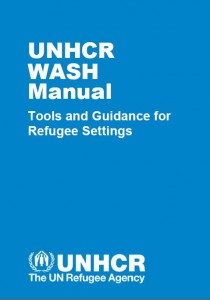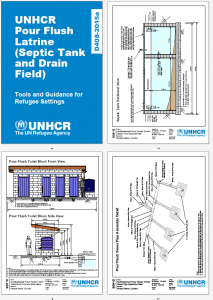
This document contains documentation to help UNHCR and WASH actors build pour flush institutional latrines in refugee settings with septic tanks and drain fields. The package includes: Technical Drawings; Step by Step Construction Drawings; Bills of Quantity; Material and Workmanship Specifications; and Design Calculations.
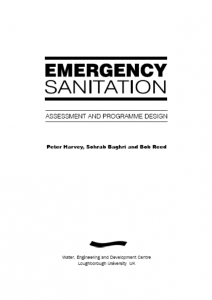
The book Emergency Sanitation: Assessment and programme design has been produced to assist those involved in planning and implementing emergency sanitation programmes. The main focus of the book is a systematic and structured approach to assessment and programme design. It provides a balance between the hardware (technical) and software (socio-cultural, institutional) aspects of sanitation programmes, and links short-term emergency response to long-term sustainability. The book is relevant to a wide range of emergency situations, including both natural and conflict-induced disasters, and open and closed settings. It is suitable for field technicians, engineers and hygiene promoters, as well as staff at agency headquarters.
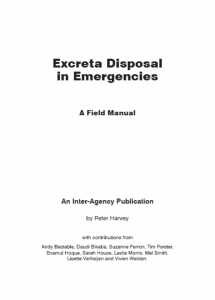
The purpose of the manual is to provide practical guidance on how to select, design, construct and maintain appropriate excreta disposal systems in emergency situations. Relevant situations include natural disasters, relief for refugees and Internally Displaced Persons (IDPs), and complex emergencies, focusing on rural and peri-urban areas. The manual presents a process, which can be followed to assess the current excreta disposal needs and priorities, and to design an appropriate programme to respond to those needs. It can also be used to select appropriate excreta disposal technologies, systems, and hygiene promotion interventions. The manual provides guidance on how to plan, design and construct systems, and how to maintain and promote appropriate use of those systems.
Organisations: WEDC and WEDC.
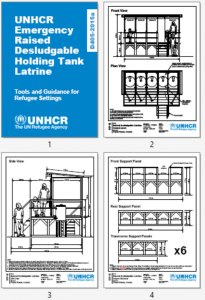
This document contains documentation to help UNHCR and WASH actors build emergency raised desludgable latrines in refugee settings. The package includes: Technical Drawings; Step by Step Construction Drawings; Bills of Quantity; Material and Workmanship Specifications; and Design Calculations.
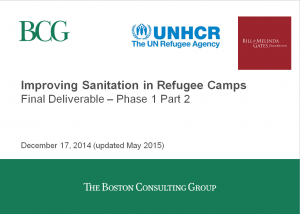
The report examines the feasibility of a wide range of standard sanitation technologies in addition to sanitation innovations in refugee contexts (including miniaturized biogas, reinvented toilets, new processor technologies, SMS dispatching, pay per use toilets, sale of by-products). Technologies were evaluated based on upfront investment cost; technology viability, suitable size and transportability; flexibility and resilience; and value for money.
Organisations: BCG. Categories: WASH Research Documents.
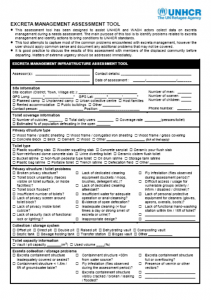
This assessment tool has been designed to assist UNHCR and WASH actors collect data on excreta management during a needs assessment. The main purpose of this tool is to identify problems related to excreta management and identify actions to bring conditions to UNHCR standards.
 English
English







